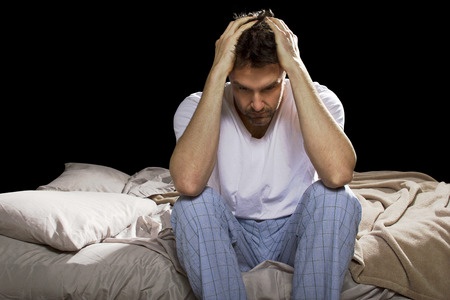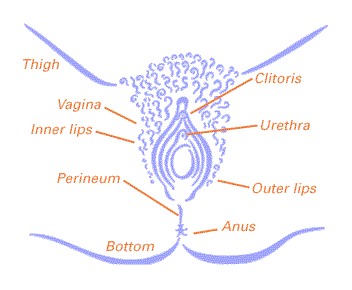What is Insomnia?
Insomnia is defined as difficulty in falling or staying asleep. The brain regulates our circadian rhythm by a sleep and wake cycle. When one is on, the other is turned off. Insomnia can result from a disturbance occurring in any one part of this cycle and could be acute or chronic in origin. Acute insomnia lasts from days to weeks and commonly occurs due to an emotional stress, loss of a loved one, a job loss, a life changing event, jet lag, mild illness or external factors like change in temperature, noise etc.
Chronic insomnia usually ranges from weeks to months and even years and is seen in patients of depression, mental disorders, long standing illness with pain and discomfort or anything that gives rise to chronic stress-physical or mental.
Causes of Insomnia

There are two major types of insomnia – primary and secondary
Primary Insomnia means that the person has sleep problems which are not directly related to any medical condition. They may be commonly identified as sleep troubles or lack of sleep caused due to jet lag, change in external temperatures or an emotional stress.
Secondary Insomnia means sleep problems arising out of a pre-existing medical or health problem. It is seen in the following medical conditions:
- Gastrointestinal problems like acidity and reflux oesophagitis
- Parkinson’s disease
- Chronic pain (patients with cancer)
- Asthma
- Arthritis
- Depression or mental disorders
- Sinusitis with nose block
- Alcohol or drug addiction
- Low back pain
- Neurological pains like sciatica
- Sleep apnea syndrome
- Restless leg syndrome
Signs and Symptoms of Insomnia

The symptoms of insomnia are those of a disturbed sleep rhythm. In case of underlying medical conditions, these symptoms will be present along with the symptoms of the disease.
- Inability to fall asleep even after trying to do so (sleepless nights)
- Frequent waking up at night from deep sleep
- Un-refreshed feeling in the morning
- Sleepiness during the day
- Irritability
- General lethargy and tiredness
Diagnosis and Treatment of Insomnia
In case you are experiencing sleep troubles, it is a good idea to see your doctor and narrate the symptoms in detail so that the exact type and cause of the insomnia can be identified and accordingly treated. The diagnosis is done mainly on the basis of history, physical examination and sleep record kept for at least a week.
Conditions like sleep apnea are confirmed with the help of a detailed sleep study. Patients with sleep apnea have a history of waking up suddenly in the middle of the night. This occurs because their airway gets obstructed involuntarily leading to a drop in the oxygen levels making them wake up with a start gasping for breath. People with a short neck, snoring habits and underlying lung pathology are seen to be suffering from sleep apnea syndrome.
Acute insomnia is not serious and can be corrected when the underlying physical or emotional stress is eradicated. One should avoid taking over the counter sleeping pills for such transient sleep troubles.
Chronic insomnia due to an underlying medical condition needs a systematic approach and the disease needs to be treated first. Example: depression is treated with anti-depressants. Underlying asthma or nasal blockage is treated with nasal sprays or decongestants.
Insomnia and Pregnancy

‘I can’t sleep‘ or sleep deprivation is a common thing to hear from expectant mothers. Sleep troubles in pregnancy are common and they mainly occur due to frequent trips to the bathroom, acidity, heartburn and leg cramps. You may feel uncomfortable due to the growing size of your tummy. It is common to be anxious about the baby at this stage. Relax, your baby is doing just fine! Practice yoga and relaxation techniques to have a good night sleep.
How to Sleep Better?
The easiest way to regulate a disturbed sleep rhythm is by following certain simple rules. Here are some helpful tips for you.
- Follow a regular exercise routine. Add half an hour of yoga or relaxation therapy. It soothes your nerves and helps you sleep better.
- Try to hit the bed at almost the same time every day, it will help to establish your circadian rhythm
- Do not use mobiles or stare at the television screen just before going to bed. It will strain your eyes and cause unwanted stimulation.
- It’s best to avoid caffeinated drinks and alcohol two to three hours before going to bed. It can lead to waking in the middle of the night.
- A warm bath, soft music or reading a book will help you sleep better. Make sure your room is comfortable and the temperature is not too hot or cold.
- Keep unwanted thoughts and worries away when you hit the bed. Think of something pleasant or count numbers backward, it helps!



